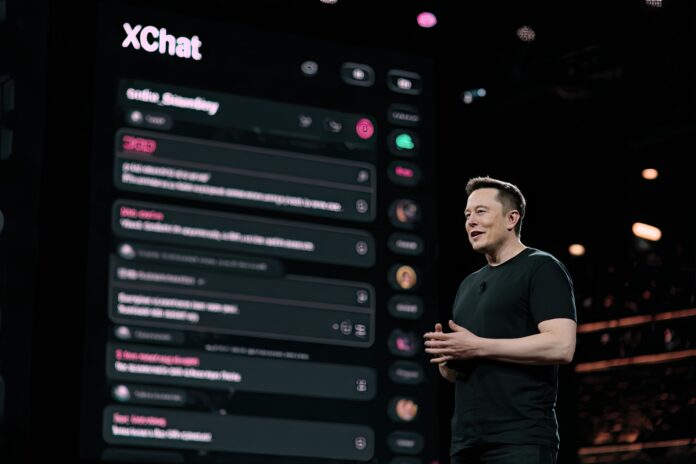XChat Security: Ambitious Rollout Meets Cautious Optimism
XChat security is under the microscope as Elon Musk declares that the encrypted messaging platform, XChat, is rolling out globally to all X (formerly Twitter) users. This marks a bold step in Musk’s vision to transform X into an all-encompassing digital ecosystem—combining social media, payments, live audio, and now, private messaging. On paper, XChat appears poised to challenge established encrypted platforms like WhatsApp and Signal. But, most importantly, the question persists: can XChat truly deliver on its security promises?
Understanding XChat: The New Face of Messaging on X
XChat is X’s answer to the growing demand for secure, private messaging. The platform touts end-to-end encryption—meaning only the communicating users should be able to read the messages. As part of X’s mission to offer “free speech and secure communication for the world,” XChat’s feature set includes message encryption, media sharing, and cross-platform support, according to both Musk’s statements.
Since April 2024, X has tested XChat with select user groups, gathering feedback on usability and security. The initial reviews highlight a clean interface, intuitive navigation, and prompt notifications. Because user convenience has become a battleground in messaging apps, these enhancements are critical. Now, as the worldwide rollout commences, the focus has shifted from design to XChat security.
Examining the Security Model: Claims vs. Reality
Elon Musk asserts that XChat deploys end-to-end encryption such that “not even I can access your messages.” This statement, while ambitious, has drawn skepticism from the cybersecurity community. Therefore, the industry is seeking answers to a series of pressing questions:
- Is XChat’s encryption method peer-reviewed or open to independent audits? As of June 2024, the encryption protocol remains proprietary and undocumented. In comparison, platforms like Signal and WhatsApp are based on the open-source Signal Protocol, which allows continuous peer review by security experts (Signal documentation).
- How are encryption keys generated, distributed, and stored? Transparent key management is fundamental to true end-to-end security. Yet, X has not shared a whitepaper or technical disclosure about this part of XChat, leaving room for speculation and concern among privacy advocates.
- Is XChat subject to backdoors or legal intercept mechanisms? Given pressure from regulators in various jurisdictions, users want assurance that their data isn’t accessible to third parties, even under law enforcement requests. Clear policy and technical statements are missing, making XChat security claims hard to evaluate.
Besides that, recent history provides a cautionary tale. X has encountered several high-profile security incidents, including phishing attacks and large-scale data breaches. For instance, in late 2023, reports surfaced of API exploits exposing user data to malicious actors (source). Because of this, industry analysts such as the Electronic Frontier Foundation (EFF) continue to advocate for independent code audits and transparent communication from X.
User Experience: Balancing Innovation with Assurance
The promise of seamless encrypted messaging is enticing. XChat’s UI is polished, supporting instant media sharing, read receipts, and group chats. The feature is currently rolling out in stages, so users may see a notification encouraging them to “start your first encrypted chat.” This gradual deployment allows X to monitor technical issues and gather community feedback.
For regular users, XChat aims to simplify secure communication. The onboarding process highlights encryption in chat headers, with visual badges indicating end-to-end security. However, as some testers report, there’s little clarity about what these badges certify—raising further questions about actual XChat security.
The Expert View: Recommendations and Best Practices
Most experts recommend a cautious approach for now. Because XChat security still lacks independent validation and granular transparency, sensitive communications—such as journalistic sources, corporate negotiations, or activism—should ideally rely on platforms with verifiably strong encryption and mature security governance.
For everyday personal use, XChat provides a more private alternative than unencrypted DMs, but it may not yet meet the threshold required for sensitive or high-risk messaging. Therefore, using a combination of secure channels, such as Signal or WhatsApp alongside XChat, is prudent until third-party reviews confirm XChat’s security posture.
Community Reactions: Hope, Skepticism, and the Path Ahead
Elon Musk’s announcement has generated excitement—many X users are eager to try out encrypted messaging without leaving the app. That said, security researchers and privacy advocates urge X to open-source its encryption methods and submit to independent audits before making bold privacy claims. Without such steps, it’s difficult for the public to fully trust XChat security, especially given X’s checkered security track record.
For now, XChat represents progress, but it’s not yet the gold standard for encrypted messaging. Transparency, independent vetting, and proactive community engagement will determine whether XChat stands with the likes of Signal or remains a convenience feature encumbered by doubt.
Conclusion: Should You Trust XChat Security?
To summarize, XChat is becoming available to all users—marking a significant milestone in X’s evolution. Its emphasis on private, encrypted messaging is forward-thinking, and the global rollout shows Musk’s determination to innovate. Nevertheless, significant questions linger about the reality of XChat security. Until X opens up its technical architecture for external expert review, users should remain vigilant and make informed choices about where they hold their most sensitive conversations.
Actionable Tip: To keep your communications safe, stay updated with official announcements from X, reputable security news sites, and the findings from independent researchers. As the landscape evolves and XChat’s security posture changes, so too should your assessment of its suitability for various messaging needs.



